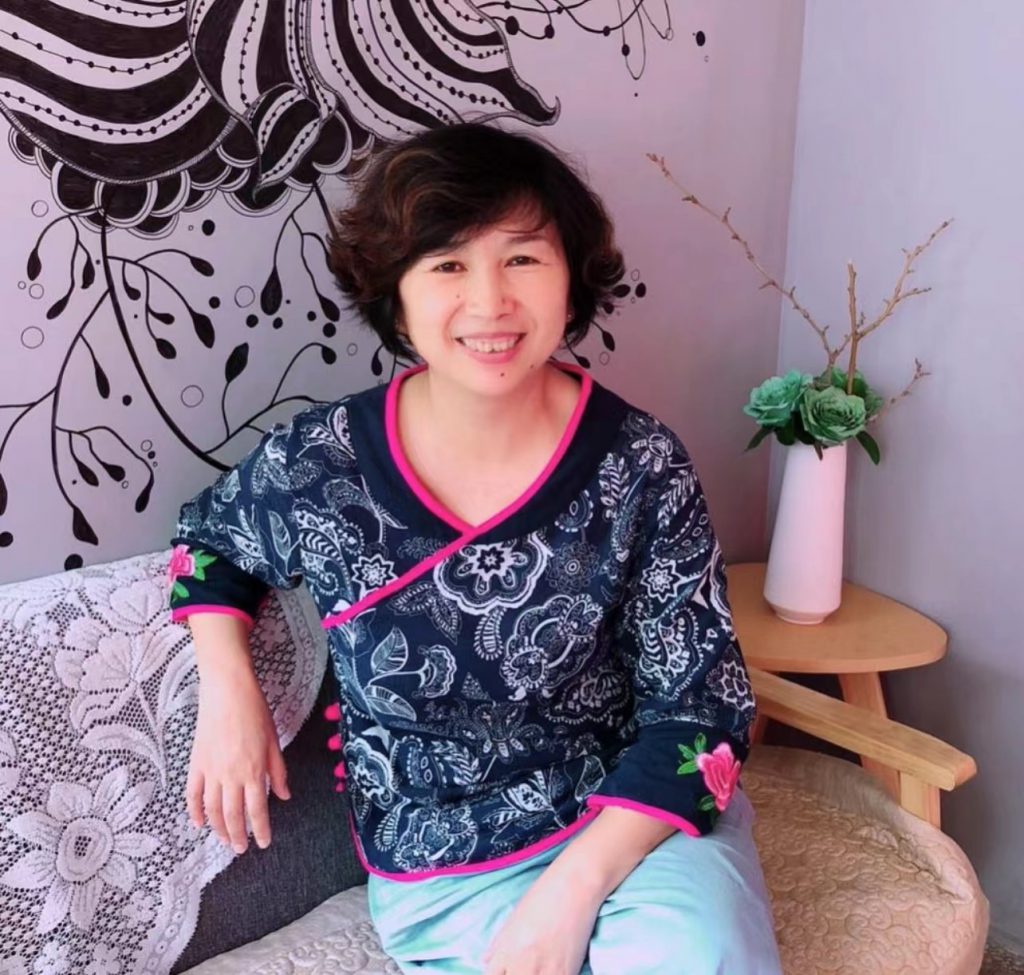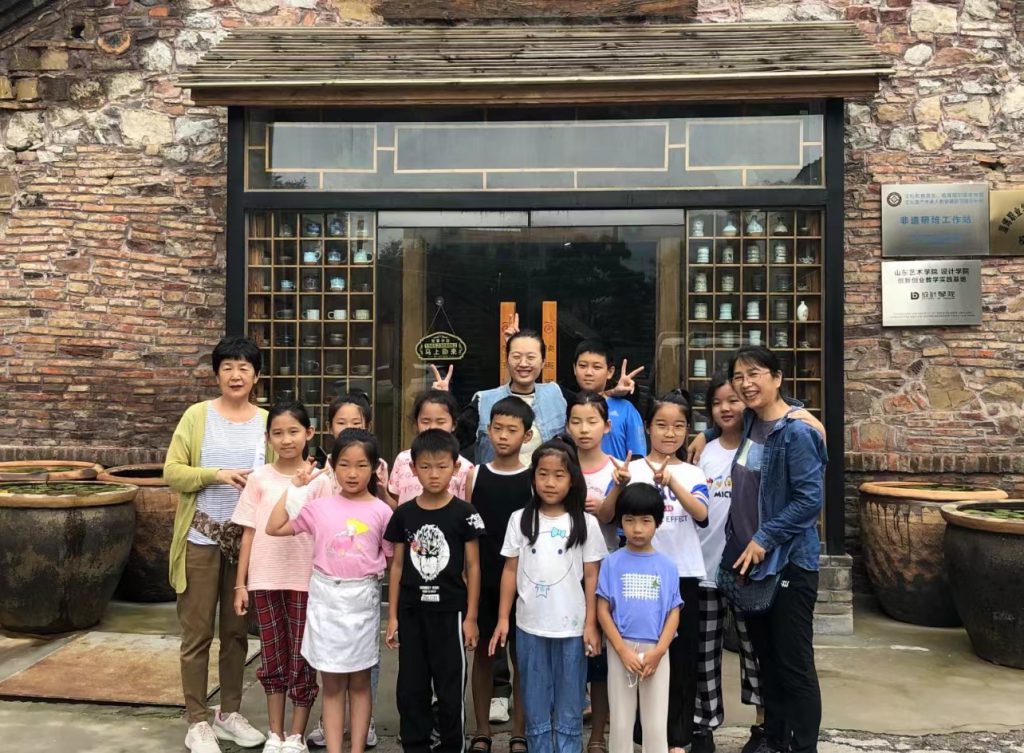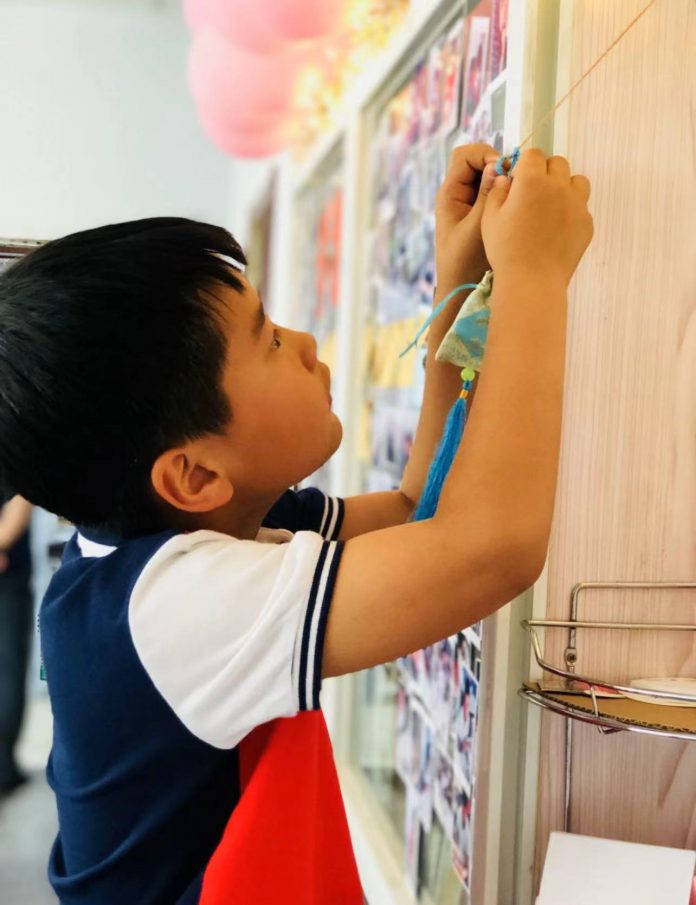Teens overcome anorexia by having art classes
By Cathleena Zhu
Zhang Ranze suffered from anorexia when he was in primary school because of strict parenting and countless tests at school. He finds his passion in Maths after his parents sent him to have art classes.
“My parents sent me to after-school classes starting from grade one every day and even during weekends. I did my study nearly 10 hours a day,” the 17-year-old recalls.
Being one of the top three students in his class in grade one, he became one of the bottom five in grade three. His mother finally realized the seriousness of the problem and took him to seek help from a psychologist.
The doctor advised his parents not to keep forcing the boy to study and kept telling him what to do. He advised them to let the child do what he really liked.
“I told my mother that I like to draw random lines on a book to relieve my stress after the doctor’s consultation. It worked,” the high school student recalls.
After learning about her son’s interest in drawing, Han Jing, Zhang’s mother sent him to a painting studio.
“Many of my friends have told me about a teacher at the studio. She does not limit children’s imagination and encourages them to follow their hearts to create. So I think this teacher can help my son,” the mother says.
Through paintings, the family learned about their son’s passion for mathematics.
“Once the teacher asked my son to draw sea creatures, he designed all the fish and corals with symbols of addition, subtraction, multiplication, and division. When I asked him why he did it, he said he liked Math and that’s why he made such an interesting design,” Han recalls.
“From his paintings, I learned that I should give him more space to explore what he likes to do,” the mother says, adding that her son goes to the painting studio once a week.
And she was delighted to see the boy’s happy face after class which used to be a rare sight.
“My son told me that attending painting class every Saturday is the highlight of his week,” says Han.
Former teacher Wang Ting, who founded the art studio in 2008 to help students with mental issues, says it is important to help students develop independent thinking.

She points out that test-based education only forces students to learn without motivating their interests and judges students’ ability merely by their grades.
“The skills I want to teach students is not drawing, but independent thinking. They need a medium to open up their minds to the world. I want to help them break free from examination-oriented education. Every child is unique,” the 60-year-old art teacher says.
While seeing improvement in many of her students, Wang feels saddened that about 50 percent of the children stopped going to her studio in six months.
“The parents think my teaching philosophy is too ideal, and children can not learn practical knowledge such as exam skills. It hits me pretty hard. There were moments I doubted if I could keep this going. But every time I think about how many kids with mental disorders need my help, it keeps me going,” Wang says.
Apart from teaching children art, Wang now also holds parenting talks to share her education philosophy with parents.
“I gradually found that parents are the ones who need my help most, because their parenting philosophy will have a direct impact on their children,” Wang says.

A group picture of Wang Ting (right 1) and her students at the gate of her art studio. (Photo courtesy of Wang Ting)
Her topics in parenting talks include children’s physical and mental health, how to avoid depression, how to communicate properly with children, and how to create a good family atmosphere.
Professor Catherine So Wing-chee of the Department of Educational Psychology at the Chinese University of Hong Kong says good parenting plays a significant role in cultivating children’s interests.
“The family is a child’s first school. Giving children encouragement rather than oppression helps build them confidence, which is an element that inspires them to explore,” So says.
So says parents should listen to their children to better understand their interests and potential.
The expert hopes that parents can guide their children to explore in a way that is as fun as art education, which can stimulate their motivation to find their passion.
Edited by Sean Pan
Sub-edited by Nutcha Hunsanimitkul







































